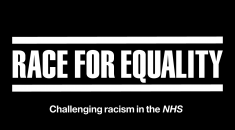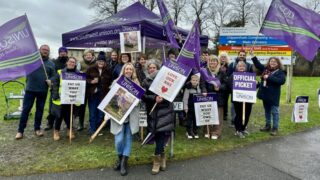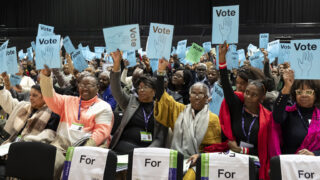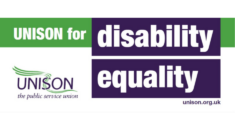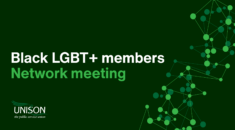A UNISON health branch was a major influence behind the winning entry of this year’s Social Partnership forum (SPF) award, North Bristol NHS Trust’s campaign to engage staff with its anti-racism policy.
Concorde Health branch was heavily involved from the start, having alerted the trust to high levels of racist abuse – both physical and verbal – towards Black staff at its sites, notably South Mead Hospital.
And the result has seen a significant improvement in the protection of staff from abusive patients, visitors and sometimes, even, colleagues.
The about-turn started a year ago, during the 2019 Black History Month, when UNISON branch chair and equality officer Marcia Dawkins (pictured above) held two open meetings in which Black members could meet with senior trust managers, including the CEO and the equality and diversity officer.
“People voiced exactly how they felt,” she says. “They pulled no punches.”
Their stories included a patient insisting that they not be treated by “non-English, non-white” people, with a manager changing a staff member as a result, and an incidence of someone writing KKK in a staff elevator, which Ms Dawkins recalls “caused outrage” in that particular meeting.
She estimates that at the time there were incidents of verbal abuse on a daily basis. But although the trust had a violence and aggression policy in place, many staff were not even aware it existed.
And when individuals did make complaints, she says, no-one was listening.
“It was like Groundhog Day – nothing seemed to change. Some BAME staff felt that they were being blamed. There have been lots of incidents not reported for fear of retribution from their managers and peers.”
But after the open meetings – and particularly the revelation of the Klan inscription – the trust acknowledged the problems and endeavoured to solve them.
UNISON and other health unions worked with the trust’s HR and communication teams on the campaign, with advice from local police, with the aim to ensure staff were aware of the policy and the reporting process. This included videos featuring executives, union reps and staff showing their support and their experience of the policy in action.
Using the template and branding of football’s Show Racism the Red Card campaign, they clearly identified what was deemed to be unacceptable behaviour, while outlining the action that would be taken – including the three-stage process of first warning, then if necessary removing offenders from the premises.
It’s already been seen that reporting of racist incidents within the trust has increased, alongside a greater engagement with staff generally.
Reports Ms Dawkins: “Managers are much more mindful now. Staff feel they can approach the trust about certain things and they’re listening. That’s the main thing, that they are listening.
“The gap between the unions, staff and the trust has been bridged immensely – to the point where we are working in unison.”
Her own work hasn’t stopped there. Ms Dawkins has also been intent on improving equality of career progression for her Black members. “This is an on-going project that must continue to ensure fairness within the workplace.”


